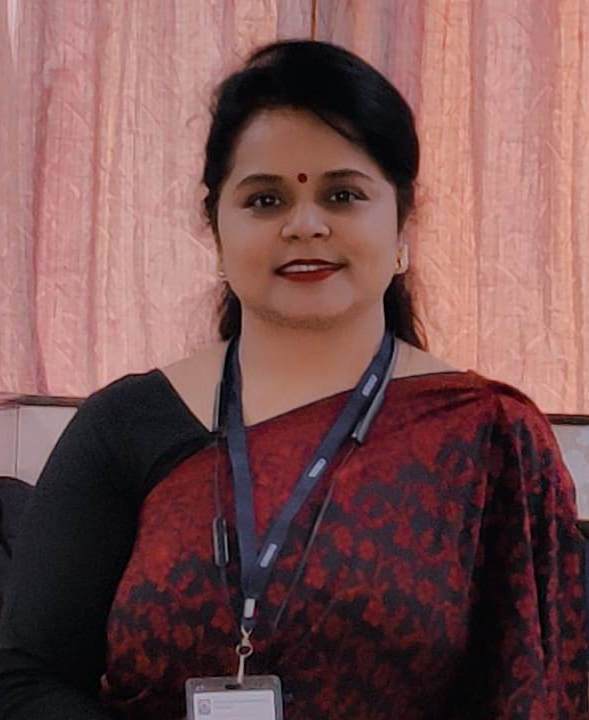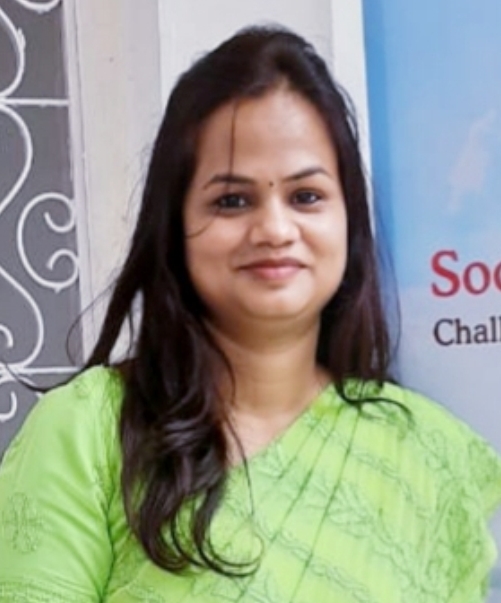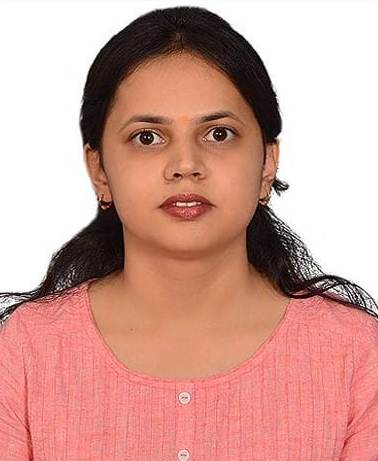|
|||||||
|
Gender Empowerment: Triumph and Trounce |
|||||||
| Paper Id :
19013 Submission Date :
2024-06-08 Acceptance Date :
2024-06-19 Publication Date :
2024-06-25
This is an open-access research paper/article distributed under the terms of the Creative Commons Attribution 4.0 International, which permits unrestricted use, distribution, and reproduction in any medium, provided the original author and source are credited. DOI:10.5281/zenodo.13120244 For verification of this paper, please visit on
http://www.socialresearchfoundation.com/innovation.php#8
|
|||||||
| |||||||
| Abstract |
Gender
Empowerment describes women's liberation from economic reliance. Worldwide, most
of the women are dependent. Despite this, women are making their spaces in all
sectors of development along with their family responsibilities. However, all
too often, their contributions, viewpoints, and ideas are disregarded or
overlooked. They face barriers to change, including as laws that hold women to
lesser standards, gender-based violence, and a lack of political and economic
possibilities. Despite this they introduced and make themselves counted in each
area of the development. |
||||||
|---|---|---|---|---|---|---|---|
| Keywords | Gender, Empowerment, Equality. | ||||||
| Introduction | The term "Gender Empowerment" refers to the freedom of women from socioeconomic dependence. Approximately fifty percent of the total population—remain economically reliant on one another even in the absence of employment. The majority of the people in the globe are women and girls. But far too frequently, their opinions, perspectives, and contributions are discounted or ignored. They are overrepresented in poverty and underrepresented in the corridors of political and economic power, and obstacles including laws that hold women to a lower standard, gender-based violence, and lack of political and economic opportunities stand in the way of change. Political, economic, and social repercussions of inequality and the poor status of women and girls are enormous. This may make it more difficult for groups to work out differences, for nations to prosper economically, or for areas to produce enough food. The world still cannot afford to miss out on the unrealized potential of women in terms of economic growth and development. To ensure that gains benefit all parts of society, women must be included in peace and security, conflict prevention, and conflict resolution. Through its foreign policy, the United States is dedicated to promoting gender equality and the empowerment of women and girls. For advancing gender equality and the position of women and girls worldwide, the Department of State has highlighted four major priorities such as (i) Women, security, and peace (ii) Adolescent girls (iii) Gender-based violence and (iv) Economic empowerment of women The Indian Constitution explicitly states that Gender Equality is a fundamental value. In addition to guaranteeing women's equality, the Constitution grants the State the authority to implement positive discrimination policies in favour of women in order to lessen their cumulative socio-economic and political disadvantages. According to Article 15 of Indian Constitution, women have the fundamental right to equal legal protection and to be free from sex-based discrimination. In Article 14, Every citizen is also required by law to abandon behaviours that are disrespectful of women’s dignity. Though we have a strong notion towards equal treatment for all the genders but still women are facing lots of disparities on their self-recognition and their consequences are not only harmful for them, but they are also stroking adverse impact on development of nation. |
||||||
| Objective of study |
This paper highlighted the accomplishments of women in the field of education, employment, agriculture and sports even after facing various challenges in their family and society as well. |
||||||
| Review of Literature |
For this paper many books and online literature has been reviewed which has been discussed through out the paper. |
||||||
| Main Text |
Inequality between the Sexes in Indian Society Gender prejudice approach can be seen in the classroom accessibility also regarding girl’s education. Even before the pandemic girls were more prone than boys to never set foot in a classroom, though economic and social benefits of female’s education are numerous. However, 130 million girls are thought to have never entered a classroom. This implies that not only will they miss out on prospects for better lives, but also that their own children will experience the same thing. Children who have mothers who have completed elementary school typically have better access to high-quality education and healthcare. We need to start investing in women in order to combat poverty. Taking on gender inequality benefits everyone by rubbing an end to global poverty, not just women. Ending extreme poverty requires achieving gender equality. There is no doubt about it: Economies change when women and girls have access to decent healthcare, sustainable livelihoods, and a voice at the decision-making table. In real manner gender inequality must be eradicated in all its forms, which contribute to the cycle of poverty in several ways. Vice-versa approach through active involvement of every community including women is required via uplifting women rights focussed initiatives. These are few illustrations should be dealt adequately to promote gender equality globally: 1. Education 2. Poverty 3. Patriarchal structure of our society 4. Illiteracy or Lack of education 5. Lack of awareness among women for their rights 6. Social customs, beliefs, and practises 1. Disparities in Equal Employment Opportunities and Salary Globally a visible aspect -salary gap for women, one of the main elements that keeps the gender balance, out of balance is financial and economic empowerment. According to a 2020 World Economic Forum (WEF) research, it will take another 100 years for women to obtain equal pay for equal work if we continue to address this disparity at our current rate. Additionally, this isn't always a problem that only affects nations with high incomes or those with low incomes. Although Burundi and Austria are about at the same stage of success in lowering their overall gender gaps, according to the same WEF report, Burundi is actually ahead of Austria in terms of closing the gender wage gap by nearly 30 percentage points. In terms of overall and wage gap-specific growth, Rwanda, one of the top 10 nations reducing the gender pay gap, is doing better than the United States but still has work to do. Economies benefit from ensuring that women have equal access to economic independence as well as equal pay for equal work. Additionally, it means that the whole family is more likely to have access to other fundamental necessities like healthcare, education, and enough food and water. 2. Disparities in agricultural productivity and household responsibilities According to reports worldwide especially in Asian and African countries women have limited access to essential equipment and resources like seeds, fertiliser, training, and farm work. Even when they have equal access to these resources, it frequently does not result in income equality. In India women comprises approximately 30% as agricultural labour force and 48% self-employed farmers. Remarkable urban migration by men women is on front to manage agricultural sector with multiple roles as labourers, cultivators and entrepreneurs. But sill they to get their items to market since they are often the primary carers for children, especially in rural areas. Because women frequently spend their earnings back into their families and communities, decreased harvests and access lead to decreased income, which is all the more detrimental. Everyone suffers when women make less money. This fundamental question has helped us understand why we should join the Africa Climate Smart Agriculture Alliance. Increasing the productivity of women farmers is one of the main objectives of the Alliance. Over 3,000 women received backyard gardening training, tools, and seeds from us in northern Ethiopia last year. The resultant vegetable and fruit gardens covered over 485 hectares of land, and the goal was for them to be able to grow a range of plants appropriate to their environment and proven to fight malnutrition. Poor access to healthcare. It isn't surprising that people living in poverty have less access to quality healthcare, but it's not just a symptom of poverty; it's also a cause of poverty. This is particularly true for women and children. Massive harm is done to families and communities as a result of the continual, avoidable loss of so many women and the chronic lack of treatment. Children of ill moms are less likely to obtain healthcare on their own, and older kids are frequently need to leave school in order to care for smaller siblings and help out at home. Concern works with communities across the world every day to alter this awful story. For instance, we have shown how to use mobile phone technology to enhance home-based care while also assisting women in knowing when and where to go if they do require medical treatment through initiatives like Chipatala Cha Pa Foni in Malawi. The expensive cost of gathering water is a women's concern, to put it simply. Around the world, more than 2 billion people lack access to clean water at home. Every day, women and girls spend a combined 200 million hours finding water, according to UNICEF. They could use this time to study for exams, work, or manage their own enterprises. One study found that when water was accessible within 15 minutes of the home, school attendance increased by as much as 12%. Each minute a woman spends gathering water is a minute she could be earning or saving money. 3. Disparities in in age of marriage Child marriage and other types of violence against women today, more than 700 million women were married before they were 18, according to UNICEF. Around 250 million of them, or more than a third, got married before turning 15. It is obvious that child marriage impacts girls significantly more than it does boys when 156 million fewer boys than 18 are married than girls. However, how does child marriage relate to poverty? Young brides are more likely to experience greater rates of discrimination, violence, and maternal mortality, and they are also less likely to complete or acquire a decent education. One of the numerous types of abuse against women and girls is forced and early marriage. This includes honour killings, trafficking, female genital mutilation, and sexual assault. The assumption that men and women can be treated differently, based on gender stereotypes that change from culture to culture, is a result of all forms of gender-based violence (GBV). The rights of women will continue to be entangled with the false notion that these types of abuse are the usual and normal as long as these damaging practices are in existence. 4. Insufficient representation of women and girls in policy- making Legislation and public policy are unlikely to be developed fairly if women are excluded from the decision-making process. Take the undervaluation of unpaid domestic and care labour, for example. Or, at a more serious level, think of the dangers that women encounter daily simply because of their gender. According to UN estimates, nearly 1 million women in the Democratic Republic of the Congo have experienced GBV and assault as a result of decades of turmoil. In the DRC, up to 52% of women have experienced domestic violence. 40% or so said they had been threatened or hurt. We are assisting marginalised and severely impoverished households in Tanganyika Province through our Graduation initiative, which creates sustainable livelihoods one by one. Women must participate fully in decision-making at home and in their community if that process is to be successful. Two-thirds of both men and women who participated in our yearly community poll indicated that women were more involved in making decisions. It represents a tiny but significant step towards gender equality in the DRC. Few Global Steps to Address the Women Issues Sensitively The fifth of the United Nations' 17 Sustainable Development Goals, which must be achieved by 2030, is gender equality. Concern's strategy to do this is to deal with the underlying causes of gender inequality. Many of these issues are related to the elements that support global hunger and poverty. Okonjo-Iweala took office as the Director-General of the World Trade Organization, making her both the first woman and the first African to hold this position in the organization’s 26-year history. Spain tightens its rape laws Spain recently passed a law designating all non-consensual intercourse as rape in an effort to prioritise survivors and strengthen punishments for offenders. The "wolf pack" gang rape case from 2016 that caused widespread outcry has led to the new legislation. Based on a "yes means yes" concept, sexual actions will need clear consent. By extending the legal definition of rape in this way, Spain joins the other 11 European nations that have done so. The bill also creates prison time for sexual harassment at the workplace and reclassifies street harassment and female genital mutilation as crimes. Lebanon makes progress in eradicating child marriage in order to promote gender equality. A new chapter on the marriage of minors was included in the Family Law revision that the Higher Islamic Council of Lebanon authorised. The new law prohibits marriage for those under the age of 15, and it mandates that girls must provide their consent before getting hitched for the union to be upheld. More than 100 million girls were anticipated to get married before turning 18 in the following ten years prior to the COVID-19 epidemic. Up to 10 million more girls are now at risk of becoming child brides due to economic shocks, instability, and school closures, unless nations throughout the world act quickly to promote change. The Higher Islamic Council revised its personal status law to prohibit the marriage of children under the age of 15, with a recommendation to ensure 18 years of age for marriage. Ending child marriage, defined as any formal marriage or informal union involving a child under the age of 18, is one of the UN Sustainable Development Goals. This is a crucial step in the process of eradicating child marriage in the nation. Following a public vote on the issue in September in which 64.1% of respondents supported same-sex marriage, Switzerland declared that same-sex couples will be permitted to marry or convert their registered partnerships into marriage in the nation. Chile joined the 31 nations where same-sex marriage is permitted after Chile's Congress approved a measure making it legal in December. Even though there are still 69 nations with laws criminalising homosexuality and a long way to go before everyone agrees that love is love, the year 2021 witnessed some encouraging steps towards decriminalising same-sex relationships. A revised penal code that permits same-sex relationships and outlaws discrimination based on sexual orientation was signed into law in Angola in February. The government's ban on homosexual marriage was declared unconstitutional by a Japanese court in a landmark ruling in March, opening the door for marital equality. Chile draughts a new constitutional baseline for gender equality. Activists believe that Chile's election of the first gender-equal constitutional assembly could help establish a new benchmark for the world. The present constitution of Chile, which was drafted in 1980 under the Pinochet dictatorship, does not permit discrimination based on sexual orientation, although it does limit the sexual and reproductive freedoms of women. It has additionally come under fire for failing to offer social protections like healthcare, education, and others. During a popular revolt in October 2019, calls for a new constitution gained traction, and a whopping 79% of Chileans voted in favour of a constitutional assembly with gender parity. technology and science. Ultimately receive greater attention are women directors Chloé Zhao made history in the year 2021 at the Oscars when she won best director, being the first person of colour and person of Asian heritage to do so. After Kathryn Bigelow, who won for directing "Hurt Locker" in 2010, the filmmaker of "Nomadland" was the only other woman to receive the honour. Additionally, two women were nominated for best director for the first time ever this year. In actuality, only seven women—including the 2021 contenders Zhao and Fennell—have received director nominations during the 93-year history of the Oscars. The Golden Globe awards also recognized women directors’ achievements with three women who have been nominated in the best director category. This was the first time more than one woman has been shortlisted in a single year. Previously, only five women were ever nominated in the 77-year awards history. Join us in celebrating Chloé Zhao who became the first woman of colour, and second woman ever to win the Oscar for directing. Three paintings by women artists from the 17th century will be kept on permanent exhibit at the Rijksmusem in Amsterdam, the first time in the 200-year history of the museum that women artists have been featured there. The three pieces—Judith Leyster's The Serenade, Gesina ter Borch's Memorial Portrait of Mosester Borch, and Rachel Ruysch's Still Life with Flowers in a Glass Vase—are currently on display at the Gallery of Honour alongside Lego's announcement that gender bias in its toys will no longer exist. Following a global poll carried out by the Geena Davis Institute on Gender in Media under Lego's sponsorship. The Danish manufacturer said that it would take action to eliminate gender prejudice in its products and marketing, including ceasing to describe toys as being "for girls" or "for boys." In order for every child to be able to relate to the toys, Lego will also make an effort to increase the diversity of characters and roles that are portrayed in their products. The goal of the Generation Equality Forum is to take swifter action. The Generation Equality Forum, which began in Mexico in March and ended in Paris in July, brought together governments, civil society, charity, the commercial sector, and youth activists to undertake a five-year action plan to advance gender equality. The Forum was organised by UN Women and co-hosted by the governments of France, with investments totalling around USD 40 billion and ambitious policy and programme pledges. The 2021 Nobel Peace Prize was given to Maria Ressa and Dmitry Muratov for their work defending free speech. Ressa has long utilised her job as a journalist and novelist to uncover abuses of power in the Philippines. She is also the co-founder of a digital media company that specialises in investigative journalism. Ressa is the first Filipino and the 18th woman to receive the Nobel Peace Prize since it was originally awarded in 1901. Only one other woman received the Nobel Prize this year. There must be a change in the underrepresentation of women. Afghan women cry out against injustice Kabul was captured by the Taliban on August 15, 2021, having a profound effect on all Afghans, particularly Afghan women and girls. Secondary school attendance for girls is prohibited, women are forbidden to work, and violence against women is on the rise. Despite all obstacles, a large number of Afghan women protested in the streets. Others continued in using various platforms to speak out in defence of their human rights. Women’s roles during COVID-19 Women are still in charge of COVID-19 research and reaction. The deadly effects of the virus have been felt over the entire planet for nearly two years after COVID-19 was deemed a pandemic. Women and girls have been leaders in research and innovation as well as being on the front lines of responding as health and care providers. Thanks to numerous female scientists and specialists, the number of vaccine rollouts grew globally in 2021. The distribution of vaccines around the world has been a crucial tool in combating the COVID-19 pandemic, from the work of teenage Amika Chebrolu on the lead molecule to specifically bind to the spike protein of SARS-CoV-2 and inhibit the virus to the important research pioneered by women researchers like Kizzmekia Corbett, Katalin Karikó, zlem Türeci, and others. The fight against the pandemic is being led by these five women. A new Nasdaq rule mandates diversity on corporate boards. A new rule mandates that at least one woman serve on the board of directors of each of the nearly 3.000 companies that are listed on Nasdaq, the US-owned electronic stock exchange. According to a recent analysis, the majority of growth and tech-related Nasdaq listed companies—roughly 75%—did not meet the requirement. The new policy mandates racial diversity and the inclusion of at least one board member who self-identifies as LGBTIQ+, and is a significant step towards ensuring women's involvement in private-sector leadership. Acknowledging Henrietta Lacks' contributions, The Black American mother and activist Henrietta Lacks was honoured by the World Health Organisation in October. Lacks passed away from cervical cancer in 1951, but cells removed from her were sold and dispersed all over the world without her knowledge or consent. The HeLa cells have been used in approximately 75,000 experiments, paving the door for developments in HIV/AIDS treatments, polio vaccines, in-vitro fertilisation, and crucial COVID-18 research. WHO is urging collective effort to address and eradicate inequity and unfair inequities in global health by celebrating Henrietta Lacks' life and legacy. The whole world is grateful to Henrietta Lacks for her generous gift to the world. The Tokyo 2020 Olympics began on July 23, 2021, after being delayed by a year due to the COVID-19 epidemic, with about 49% of the competitors taking part, making it the most gender-balanced Games in history. For the first time, each team competing in the Games included at least one male and one female participant, and the sporting calendar gave equal attention to men's and women's activities during primetime. There were no female athletes present at the 1896 Olympic Games in Athens, the first modern Olympics. The Olympics of the year 2020 set a new standard for gender equality in sport by having the highest gender equality ever. |
||||||
| Conclusion |
Only the eradication of gender-based discrimination can be the only way to minimize associated issues of gender inequality. Women are deprived of fundamental rights and well-being chances due to gender inequality. Thus, women become impoverished and remain so. In this way the Governments of
different countries have identified the disparity and is working to close it by
promoting women's rights, increasing social services, implementing financial
inclusion initiatives, and offering training programs. The path to
accomplishing the high objectives of SDG1 and reducing poverty includes
ensuring women's access to financial inclusion, land control, inheritance of
property, and basic services. The path to accomplishing
the high objectives of SDG1 and reducing poverty includes ensuring women's
access to financial inclusion, land control, inheritance of property, and basic
services.
In India Increasing representation of women by reserving seats in the
legislature and raising the reservation of seats to 50% in rural and urban
self-government are two actions that can be taken to address gender inequality.
Suggestions for Gender Empowerment at Global Level
|
||||||
| References |
|
||||||



